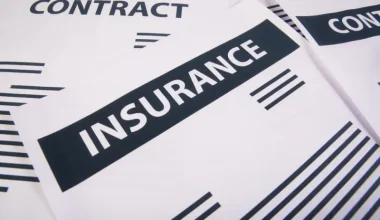The finest photography insurance policies allow you to focus on your trade without worrying about liability claims or replacing damaged equipment, allowing you to capture moments that will last a lifetime. The best insurance for photographers is cheap, can be obtained quickly, provides access to documents, makes it simple to produce a certificate of insurance (COI) to a location where you are working, and has helpful customer service when questions arise. Furthermore, this article will explore the best photographer insurance and progressive photography insurance.
Best Insurance for Photographers
Photographers require extensive photography insurance to protect their property, which typically includes expensive cameras and other equipment. They nevertheless require liability insurance in the event of an accident or injury, as well as motor insurance and professional liability insurance, to defend against negligence or incorrect advice. The following are the best insurance photographers:
#1. Thimble
Unlike other photography insurance companies, Thimble gives you the option to get coverage for a single job or on a recurring monthly basis. Photography insurance can be purchased on a per-project basis using this method, allowing you to pay for protection just when you need it.
Despite the fact that Thimble was created in 2016, their business insurance products are underwritten by third-party insurers who have been in business for decades. Markel Insurance Company and National Specialty Insurance Company underwrite the policies, both of which have an A financial strength rating from AM Best.
Drone coverage is provided by Global Aerospace, Inc. We chose Thimble because of the flexibility of their photography insurance options, particularly the fact that you don’t have to pay for a year (or even a month) of coverage all at once.
#2. biBERK
biBERK was chosen among the best insurance photographers because of the ease with which their customers can select policy features based on their needs. While biBERK is not a household name, you should be aware that it is a Berkshire Hathaway Company.
As a subsidiary of Warren Buffett’s Berkshire Hathaway Insurance Group, BiBERK enjoys the support of an industry powerhouse. It was in 1839 that textile tycoon Oliver Chace laid the groundwork for what would become Berkshire Hathaway, now a Fortune 500 company with an A++ rating from AM Best.
Researchers chose this firm as the best for policy customization since you can create your own policy with the exact coverage options you require.
Because biBERK allows you to buy insurance directly, they guarantee rates that are up to 20% lower than competitors. They also let you personalize your insurance with the specific coverage features you require.
#3. Hill & Usher
Hill & Usher provides the best insurance for photographers, tailored to videographers, graphic designers, and web designers. Studio equipment, as well as cameras, liabilities, and other factors, are all protected by their insurance.
Hill & Usher is a full-service insurance agency that offers the Package Choice photography insurance plan. It’s crucial to remember that depending on where you live, various insurance companies—including The Hartford, CNA, Travellers, Zurich, Firemen’s Fund, and others—underwrite Hill & Usher’s policies. Also, while you can start building a free quotation online, you’ll need to meet with an agent to determine how much you’ll pay for a policy with the coverage and limits you choose.
Hill & Usher’s Package Choice was chosen for our rating because they provide particular coverage options for photographers who operate their own studio, which includes cover for the structure. Professional liability, coverage for cameras and professional gear, protection for computers and portable gadgets, business income insurance, and general liability are all options for photography insurance.
#4. The Hartford
While The Hartford is a good insurance company that you should consider whether you have employees or are a sole proprietor, we chose them for our rating because of their complete coverage for photographers and studio employees who are injured on the job.
Established in 1810, Hartford is currently a leading provider of insurance for homes, cars, and businesses of all sizes. According to AM Best, Hartford has an A+ financial strength rating, so it should have no issue paying out claims..
Additionally, Hartford has extensive employee coverage choices, which is critical for photography studios with several workers on their staff.
While The Hartford is a wonderful option for photography insurance, whether you work alone or with a team, they stood out in our list because of their strong employee coverage options, which include professional liability and workers’ compensation. You can acquire a free quotation online, but you can also tailor your coverage by speaking with an agent over the phone or in person.
The Hartford provides a variety of photography insurance policies, including those that cover employees and their activities, as well as general liability, commercial property, income, and computer interruption. If you run your photography business from home, you can also purchase specific coverage.
Read Also: Professional Indemnity Insurance: How Does It Work?
Photographer Insurance
Photographer insurance is coverage that is tailored to the insurance requirements of a professional photographer. Choosing the correct coverages for your needs is critical, as they can help shield your company from the potentially disastrous expense of a claim.
How Much Does Photographer Insurance Cost?
The cost of photography insurance varies according to a variety of criteria, including the size of the photography business, the number of employees, and the risk factors. A photographic company with numerous studios and photographers, for example, will pay a different premium than a company with only one studio and photographer.
Basic business insurance for photographers:
#1. General Liability
This photographic liability insurance protects your company from errors and the litigation that follow. For example, during a wedding shoot, a guest slips on a tripod leg and is wounded. Their medical expenditures may be covered under general liability.
#2. Commercial Auto
If you use your vehicle for business purposes, such as transporting photography equipment to a shoot, you must insure it with commercial auto coverage. Most personal auto insurance policies will not cover your vehicle if it is used for business.
#3. Business Owners Policy (BOP)
A BOP is standard coverage for photographers that combines liability and coverage for your business property into one insurance policy.
#4. Workers’ Compensation
Workers’ compensation insurance covers your employees in the event that they are injured on the job.
Read Also: LLC Business Insurance: What It Means & Why You Need It
What Are the Best Photographer Insurance
Having the correct insurance coverage can provide you with peace of mind and protect you if something goes wrong. The best insurance companies for photographers provide inexpensive rates with more than enough coverage, both in terms of amount and type, to cover whatever project you may be working on. Moreover, here are the best insurance companies for photographers.
#1. Full Frame Insurance
Full Frame Insurance is an insurance company that specializes in protecting photographers and videographers. It is the best insurance provider for hobbyists because it is one of the few insurers that offers event-specific coverage. If you only provide photography services occasionally or on a part-time basis, this is the ideal way to obtain protection without superfluous coverage.
Pros
- Ideal for amateurs
- Excellent for one-event photography
Cons
- Absence of employee liability and workers’ compensation coverage
- Inaccessible in all regions
- A few client reviews
#2. Insureon
Insureon is a website that allows you to compare coverage and rates from several insurers. There are options for a wide range of entrepreneurs with small businesses in numerous vocations, including photography. Its coverage and methodology are tailored to each type of business application. It provides an easy-to-use online application and speedy coverage.
Pros
- Compare costs and coverages from various insurance companies.
- Simple online application
Cons
- There is no pricing transparency.
- Coverage possibilities differ depending on the insurer.
#3. PPA PhotoCare
When you join the PPA, you receive access to a plethora of benefits. You can find newsletters, discounts, customer reports, sales and marketing tools, financial benchmarks, boilerplate contracts, business guides, and copyright and advocacy resources. Most significantly, you will receive PhotoCare equipment insurance.
PPA offers a relatively low monthly membership fee. So much so that it’s difficult to understand how it can offer that much value to its members. One of the most compelling reasons to join the PPA is PhotoCare insurance. While PPA intended this to be a backup insurance policy, it is comprehensive enough to assist amateur photographers in transitioning to full-time pros.
Pros
- Coverage for equipment up to $15,000
- Protection against data loss and neglect
- Coverage on a global scale
- There are no additional fees in addition to your membership price.
Cons
- Does not cover general liability or personal injuries.
- There is no drone coverage.
#4. Next
Next Insurance has made significant investments in the digital experience and has a quick and simple pricing process. You can get a quote and buy insurance in minutes. If you have insurance, you can create and share a COI in seconds anytime a venue demands proof of insurance. This feature makes it an excellent choice for photographers who frequently work with event venues. Users can view their documents at any time via the app and website. However, there is no 24-hour call centre if a problem cannot be resolved online.
Because Next is still a young provider, its coverage options aren’t as extensive as those of a more established provider like The Hartford. While it provides the essentials, The Hartford provides additional alternatives for your business.
Pros
- The website is simple to use.
- Policy package alternatives
- Online policy purchase
Cons
- No longer available 24/7
- Coverage possibilities are limited in comparison to a larger carrier.
- It does not provide commercial auto insurance.
Progressive Photography Insurance
Progressive is the only company on our list that has been in business since 1937, while the others are all relative newcomers to the insurance market. You can receive an estimate online or work with a real person at Progressive to create photography insurance that fits your business’s unique needs. Progressive, a full-service insurance company with a long history of satisfying its responsibilities, also has an A+ rating from AM Best for its financial strength.
Progressive is well known for its auto insurance and home insurance, but the company also provides a variety of business and commercial coverage alternatives. Furthermore, Progressive has its own Progressive Advantage Business Program that assists businesses in obtaining the precise coverage they require to safeguard their equipment and themselves. We ultimately chose Progressive as the best overall insurance company because of its extensive corporate history, high ratings, and versatile coverage options.
In terms of photography insurance, Progressive allows you to customize a policy that includes general liability coverage as well as commercial auto insurance, which covers you when you drive for work. If you have employees, you may also invest in workers’ compensation insurance as well as a Business Owner’s Policy (BOP), which allows you to combine general liability coverage with commercial property damage for maximum protection. You can also personalize your policy and coverage limitations to the size of your company or the types of events you oversee the most.
Pros
- Long history as a trustworthy insurance firm in the United States
- You can acquire a Progressive quote in person or online.
- There are many coverage alternatives available.
Cons
- Their plans are less flexible (no one-day or shoot-based coverage is available).
- To obtain a free quote, you must provide extensive personal and business information.
Should I Buy Insurance for Camera?
Most of us would be devastated if we broke or lost a camera or lens. It could even put an end to your photography career. If you cannot afford to replace lost or damaged equipment, you might consider photography equipment insurance.
Should I Insure My Photography Equipment?
You take a lot of chances as a photographer. These dangers include theft and damaged equipment, which can cost your company thousands of dollars. That is why everyone who owns or maintains a photography business should consider purchasing equipment insurance.
Can You Make a Living off of Freelance Photography?
Freelance photography is an interesting vocation that allows creative people to earn money by using their skills behind the camera lens. As a freelancer, you have the freedom to choose your own schedule and work with clients and projects that interest you.
Should I Take Insurance for IPHONE?
The best iPhone insurance plan is one that pays out in the event of theft, replaces the phone if it is lost or damaged, and covers accidental or liquid damage to the screen.
Does Insurance Cover a Broken Camera?
Most homeowner’s insurance policies will cover some of the potential damage to your camera (even if you travel), but the scope of coverage must be specified. Some companies will compensate for theft, but not for ‘wear and tear’ or devaluation of your camera. This is undoubtedly a constraint for professional photographers.






